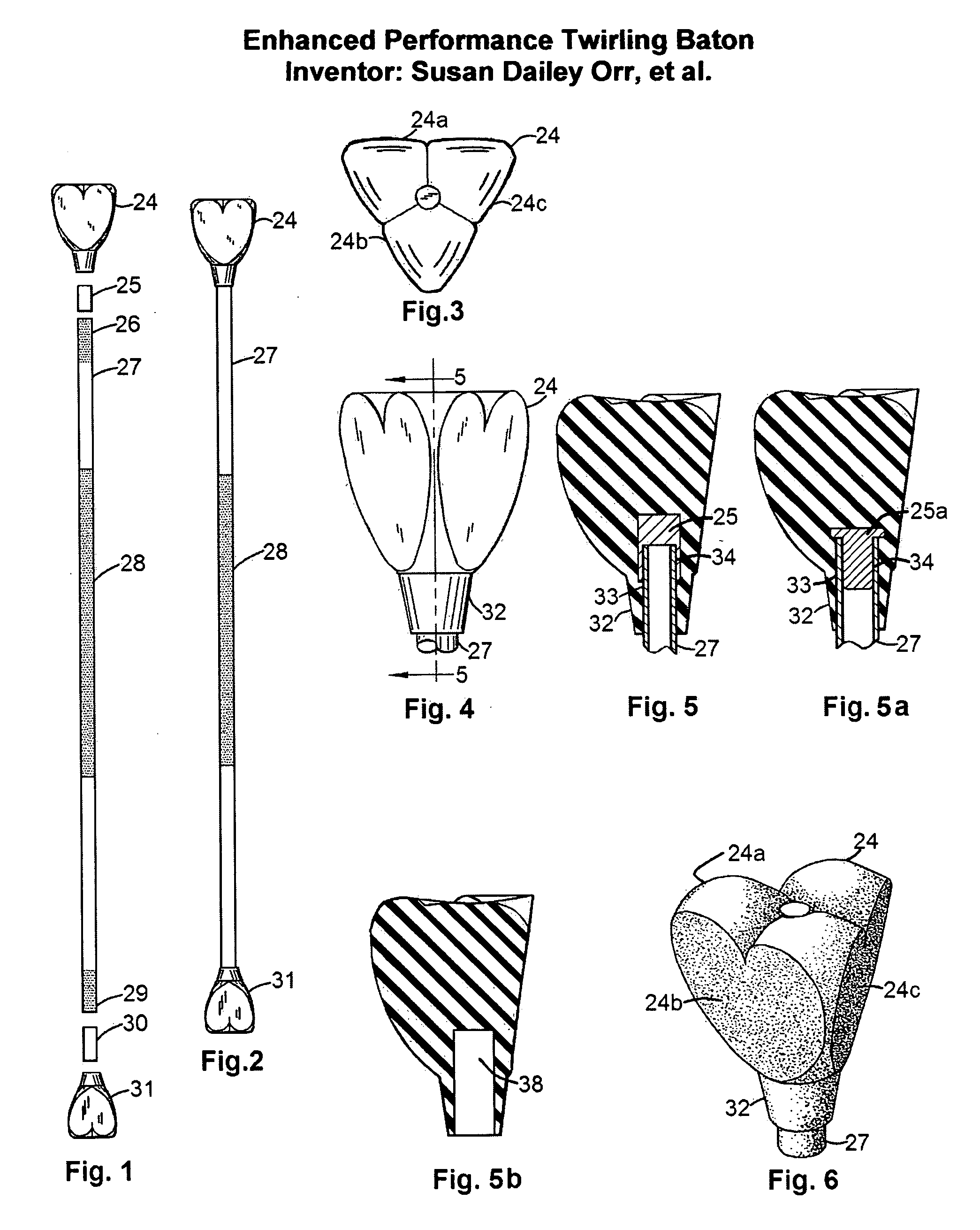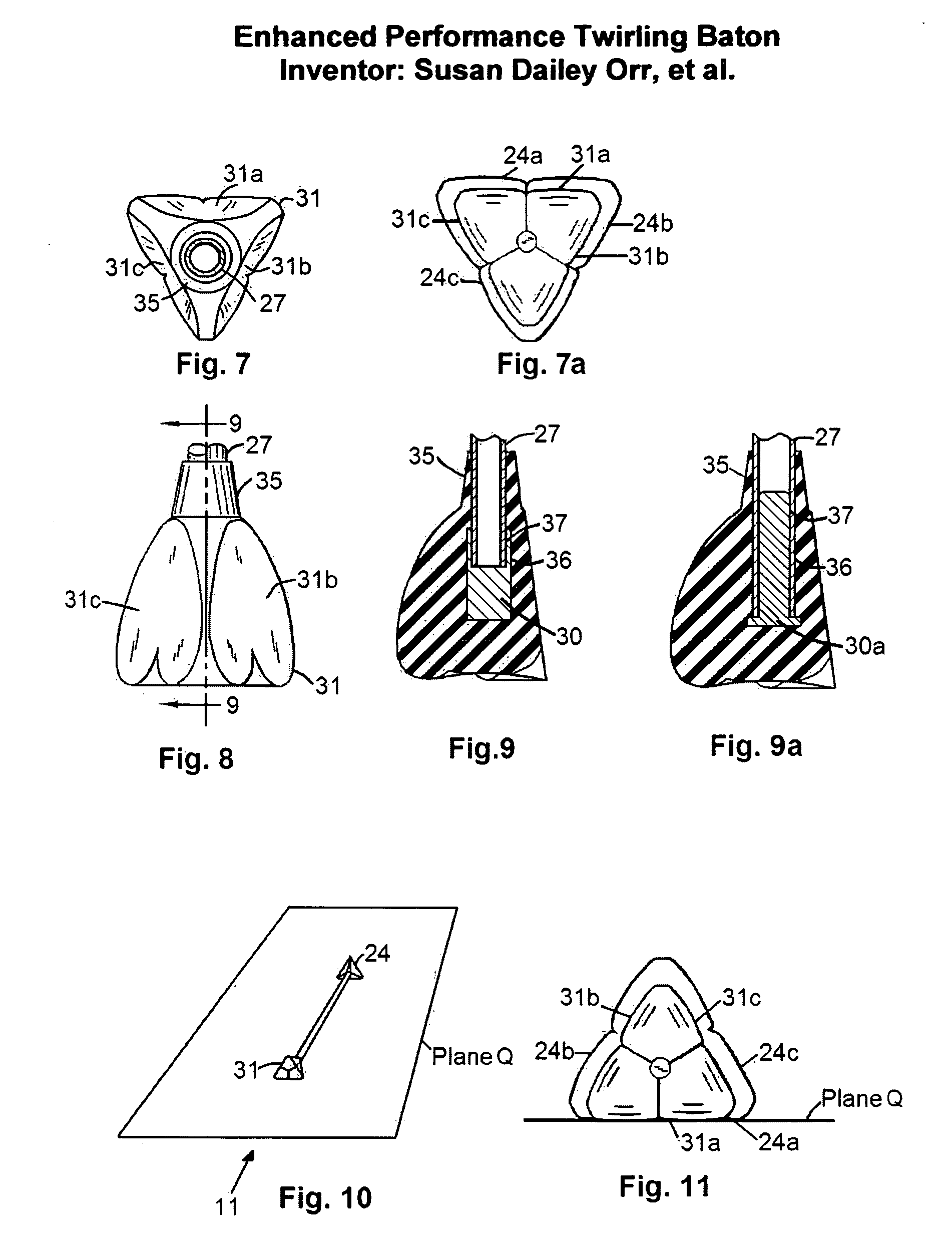Enhanced performance twirling baton
a baton and twirling technology, applied in the field of batons, can solve the problems of baton twirling, excessive wet & wet bouncing, and is much more difficult to roll, so as to reduce the effort of the baton twirling, facilitate the timing of the baton rubber ends, and reduce the effect of boun
- Summary
- Abstract
- Description
- Claims
- Application Information
AI Technical Summary
Benefits of technology
Problems solved by technology
Method used
Image
Examples
Embodiment Construction
[0076]FIG. 1 is an exploded view showing how all of the details assemble together to become an enhanced performance twirling baton. The enhanced performance baton is made up of six basic components: They are detail 24, which is the rubber ball end; detail 25, which is a ball end counterbalance weight, detail 27, which is the baton shaft, detail 28 which is the non-slip surface of the baton shaft, detail 30 which is the tip end counterbalance weight and detail 31 which is the rubber tip end of the baton. Also shown in this drawing are details 26 and 29 which are the ends of the baton shaft that have been surface treated to allow proper bond by and epoxy to hold the rubber ends on the baton.
[0077] It should be noted that detail number 24, the ball end is approximately 20% larger than detail 31, the tip end. Other than size, the ball and tip ends are the same in design. Likewise, the counter balance weights, detail number 25, the ball end counterbalance weight and detail number 30 are...
PUM
 Login to View More
Login to View More Abstract
Description
Claims
Application Information
 Login to View More
Login to View More - R&D
- Intellectual Property
- Life Sciences
- Materials
- Tech Scout
- Unparalleled Data Quality
- Higher Quality Content
- 60% Fewer Hallucinations
Browse by: Latest US Patents, China's latest patents, Technical Efficacy Thesaurus, Application Domain, Technology Topic, Popular Technical Reports.
© 2025 PatSnap. All rights reserved.Legal|Privacy policy|Modern Slavery Act Transparency Statement|Sitemap|About US| Contact US: help@patsnap.com



